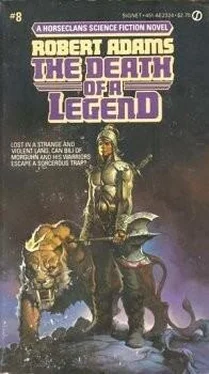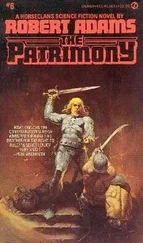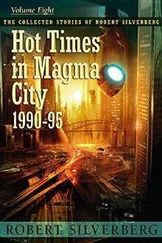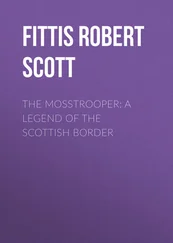“You see, some years after Elmuh’s forebears settled here among us Kuhmbuhluhners, a deadly and most mysterious plague struck, affecting only the pure-strain Teenéhdjook, not either the Ganiks or the Kleesahk. This disease did to death the oldest and the youngest, mainly, but also all the gravid females… and unfortunately, all of the Teenéhdjook females of breeding age were carrying, at that time. Now there are no pure-blood Teenéhdjook that I know of in all of New Kuhmbuhluhn, alas. Some few who claim to be, have the size to be, are at the very best at least a quarter Ganik, probably more, in truth.”
The prince had a long draft from his goblet, then said, “Cousin Bili, I’ll now be as blunt with you as you were with me this morning. You’ve heard, by now, about all that there is to know of my House, lands and peoples and the great and deadly problems that beset us all, but you have yet to set my mind to rest on certain facts concerning you and your rather heterogeneous following. So now you must tell me. Just how does a Confederation thoheeks come to be captaining a band composed of not only Ehleenee, Horseclansmen and burker Freefighters, but Ahrmehnee tribesmen and Moon Maidens, as well?”
“Last spring,” Bili began, “I was summoned down from Harzburk, because my sire, Thoheeks Hwahruhn, had been taken quite ill and was feared to be near death; and die he did, very shortly after I had arrived in Morguhn. But, at the same time, I and most of my nobles were faced with a rebellion of certain disloyal nobles, bemused peasants and city commoners and a gaggle of blood thirsty priests and monks of the Ehleen Church.
“They sought to trap me and my loyalists in my capital city, Morguhnpolis, but with the timely assistance of some score and a half of Freefighter city guardsmen, we all managed to hack our way out and gain to my country seat, Morguhn Hall. This they shortly invested, of course, but it was a mere armed rabble they commanded, no army, and a single nighttime sortie so agitated and alarmed them that they began to hack each other in the dark and most had fled by a little after dawn.
“With all save a couple of my noblemen, a few score Freefighters and the warriors of a small clan new-come from the Sea of Grass, the Undying High Lord Milo and I hotly pursued the rebel bastards, rode the cowardly scum down and slew some hundreds of them on the road to Morguhnpolis.
“Halfway to my capital, my scratch force was augmented by several troops of Confederation light cavalry, lancers, mostly, and then we all rode on. But we found Morguhnpolis deserted. The rebel leaders had, realizing apparently that they could not hold the city, driven all the commoners out the west gate, then rebarred that gate and affected their own escape by way of a secret tunnel that led from a subcellar of the city palace to an old quarry some half a mile outside the walls. And while we took up pursuit of the mob of commoners along the west road, the mounted leaders together with a large contingent of rebels from the neighboring Duchy of Vawn—wherein the risings had succeeded—rode north into the Duchy of Skaht, then angled west into the Ahrmehnee lands before turning south and so gaining to Vawn. The Ahrmehnee warriors, Sacred Sun bless them, killed at least a third of the rebel poosteesee before they were done. Too bad they didn’t get them all… especially their leader, Vahrohneeskos Drehkos Daiviz of Morguhns.
“With the rebels holed up in or mustering around Vawnpolis, a large proportion of the Confederation Regulars quartered on the inhabitants of the trade city of the Duchy of Morguhn—Kehnooryos Deskahti, which had been firmly rebel and had had to be stormed by High Lord Milo’s infantry—and with me, the High Lady Aldora, my nobles and Freefighters and some hundreds of Confederation cavalry going through Morguhn like a dose of salts and scotching rebels wherever we found the bastards, the High Lord began to assemble the noblemen of the entire archduchy with their retainers and a vast horde of unemployed Freefighters in and around Morguhnpolis.
“When all had rallied, he left strong garrisons in both Kehnooryos Deskahti and Morguhnpolis, brought in a few specialist officers from the Confederation capital, marched the bulk of the regular foot over to Morguhnpolis, then set our column on the road to Vawnpolis. It should’ve been a short, easy advance, but thanks to that same bastard, Drehkos Daiviz of Morguhn, it was anything but! With a partly mounted force of rebels from Vawnpolis, the old devil harried us near every step of the way—raiding supply and reinforcement columns, picking off vanguards and flankers and stragglers whenever the opportunity presented itself, felling trees to block the trade road, polluting the water, sniping at the columns and at camp sentries. Finally, he and his full force ambushed the head of the column one afternoon. Although we beat off the boy-buggers, we took heavy losses.
“He struck us only one other time in force, when, a few days after that ambush, his entire strength first arrow-rained a camp we were departing, then charged the rear guards and camp strikers, heavily armed and ahorse. Again, our losses were great—both in men and in material—but so many men did the rebels lose that morning that they never again could mount the strength for raids in force against us. And so, after we had reorganized and resupplied, we marched on to Vawnpolis virtually unopposed.”
“For all your probably justified hatred and loathing of this Baronet Drehkos, Cousin Bili,” remarked the prince, “he strikes me as a rare and precious breed of great captain. In his salad days, he must have been a renowned warrior. He’d served as a professional, perhaps?”
Bili shook his shaven head vehemently. “On the contrary, lord prince, aside from the usual arms training received by the sound sons of any nobleman, he had never gone armed for any purpose other than the hunt… until this hell-spawned rebellion. He had been a city lordling, held title to no land save his city house, and had been a sort of gentle joke to and among the other nobility of the duchy—known only for drinking, feasting and spending vast sums of his wealthy wife’s inheritance on hare-brained schemes of one sort or other.”
“Hmmph,” the prince remarked again. “Then the man must’ve been of that even rarer breed—the born military genius, whose mighty talents never surface until and if the need for them arises. King Buk I—known as the Headsplitter—the first king of the Old Dynasty of Pitzburk, was said to have been one such unheralded genius of defensive warfare, if you’ll recall.”
Bili grimaced. “Yes, I do recall, and King Buk Headsplitter was one of the defenders we had to fight at the siege of Vawnpolis.”
One side of Byruhn’s bushy eyebrow went up. “Young cousin, have you had too much of the drink? King Buk died a good three hundred years agone.”
Bili smiled grimly. “No, lord prince, I’m not befuddled with wine or spirits. One of the accomplishments of the traitorous Baronet Drehkos was the ability to read Old Mehrikan, both Old and Modern Ehleeneekos and even those strange curlicues that the Zahrtohgahns call writing. In the Vawnpolis citadel, he chanced across some collection of ancient books on various aspects of warfare, assembled and stored there by a long-dead Thoheeks Vawn. One of them was supposedly penned or at least dictated by old King Buk I of Pitzburk, and the back-stabbing baronet used that book and the others well, very well indeed. “At the outset, Vawnpolis had been little stronger and no more able to withstand serious attack or prolonged siege than my own capital city, Morguhnpolis, especially since it held no real professional soldiers and relatively few men trained to arms. When we arrived under the walls of Vawnpolis, we numbered nearly forty thousand men, the largest numbers of them Confederation Regulars, and equipped with a complete and modern siege train. We had with us old Sir Ehd Gahth-wahlt, a justly famous expert at the reduction of cities and burks, and so we all expected a quick and relatively painless victory.
Читать дальше












